
authors.elsevier.com/sd/article/S...
authors.elsevier.com/sd/article/S...
In a new paper just published at @collabrapsychology.bsky.social we discuss three known unknowns.
doi.org/10.1525/coll...
Here is a 🧵
In a new paper just published at @collabrapsychology.bsky.social we discuss three known unknowns.
doi.org/10.1525/coll...
Here is a 🧵
My guide to data visualization, which includes a very long table of contents, tons of charts, and more.
--> Why data visualization matters and how to make charts more effective, clear, transparent, and sometimes, beautiful.
www.scientificdiscovery.dev/p/salonis-gu...

My guide to data visualization, which includes a very long table of contents, tons of charts, and more.
--> Why data visualization matters and how to make charts more effective, clear, transparent, and sometimes, beautiful.
www.scientificdiscovery.dev/p/salonis-gu...
We (@kwinter.bsky.social, @kaiepstude.bsky.social , Bob Fennis and I) found that encouraging counterfactual thinking reduces engagement with conspiracy theories (i.e., clicks on, and reading times for, conspiracy articles).
A 🧵
1/n

We (@kwinter.bsky.social, @kaiepstude.bsky.social , Bob Fennis and I) found that encouraging counterfactual thinking reduces engagement with conspiracy theories (i.e., clicks on, and reading times for, conspiracy articles).
A 🧵
1/n
There we explore how social media companies and other online information technology firms are able to manipulate scientific research about the effects of their products.

There we explore how social media companies and other online information technology firms are able to manipulate scientific research about the effects of their products.
www.easp.eu/news/itm/eas...

www.psychologytoday.com/us/blog/misg...

www.psychologytoday.com/us/blog/misg...
apnews.com/article/rubi...

apnews.com/article/rubi...
A devastating day for the USA as tens of millions of dollars of grants seeking to combat the spread of false information were terminated. We have a federal govenrment that does not consider the verifiable truth a priority. www.nsf.gov/updates-on-p...

Science is, in essence, designed to separate the true from the false.
Understanding how falsehoods spread is key to the scientific endeavor. It is not a violation of free speech to be proven wrong.
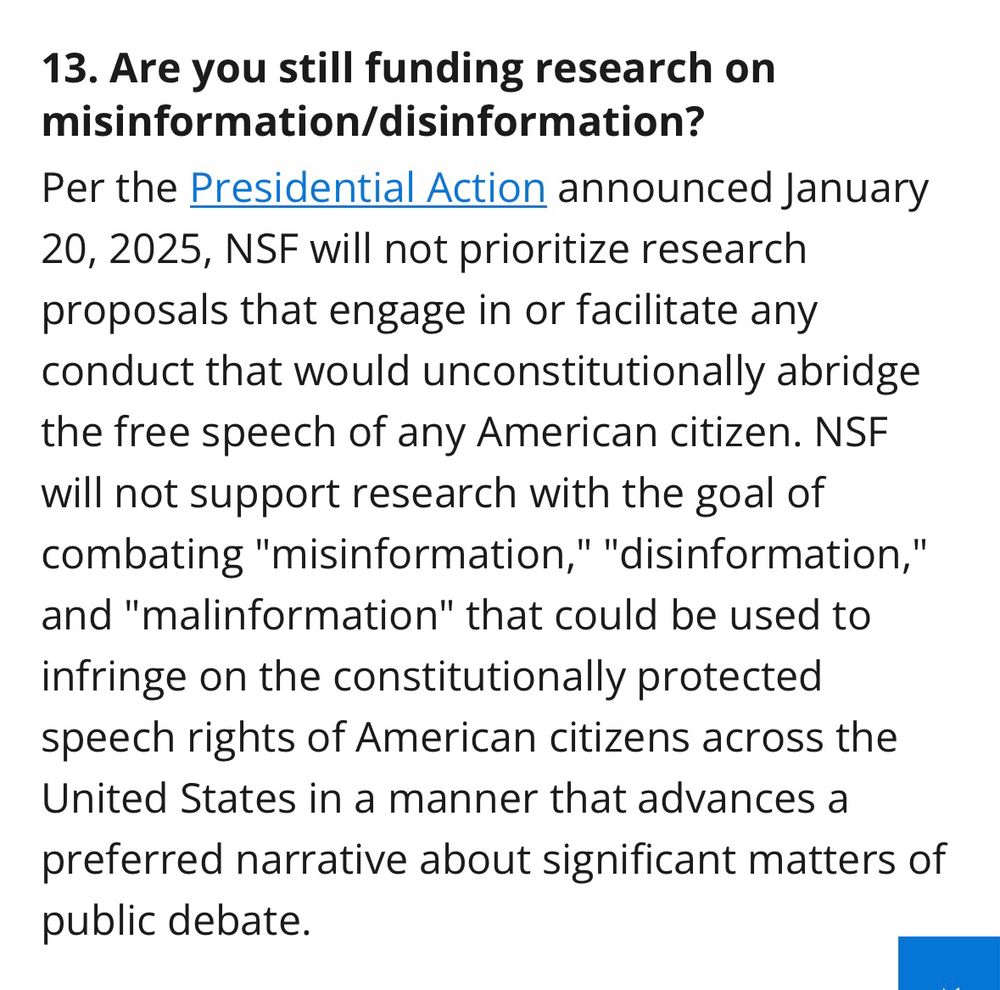
Science is, in essence, designed to separate the true from the false.
Understanding how falsehoods spread is key to the scientific endeavor. It is not a violation of free speech to be proven wrong.
Edited by Jonas R. Kunst and John F. Dovidio.
advances.in/psychology/1...

Edited by Jonas R. Kunst and John F. Dovidio.
advances.in/psychology/1...
How do different "Great Replacement" conspiracy narratives (blaming relatively powerful left-wing elites or relatively powerless Muslim communities) affect radical collective action intentions against different targets across the political spectrum?
A 🧵 about what we found:

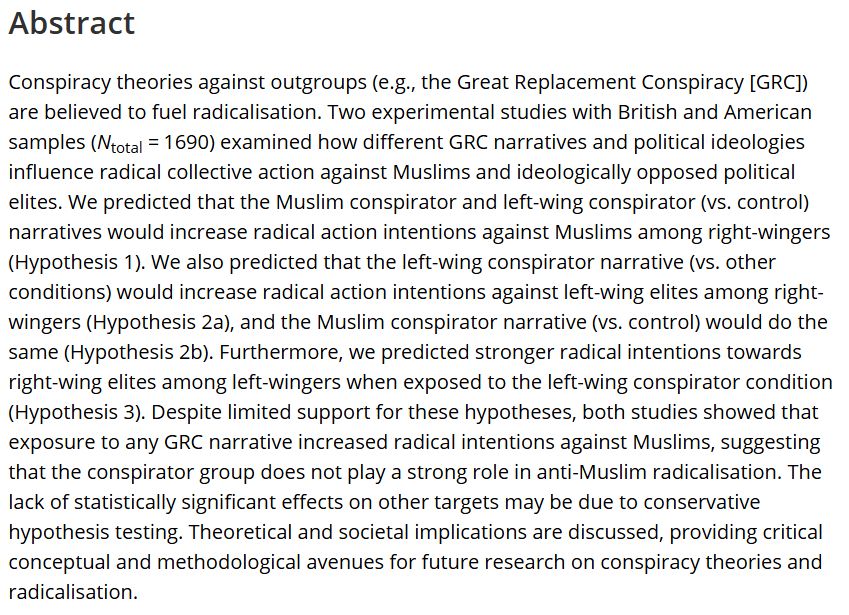
How do different "Great Replacement" conspiracy narratives (blaming relatively powerful left-wing elites or relatively powerless Muslim communities) affect radical collective action intentions against different targets across the political spectrum?
A 🧵 about what we found:
go.bsky.app/PZPcxeL
go.bsky.app/PZPcxeL
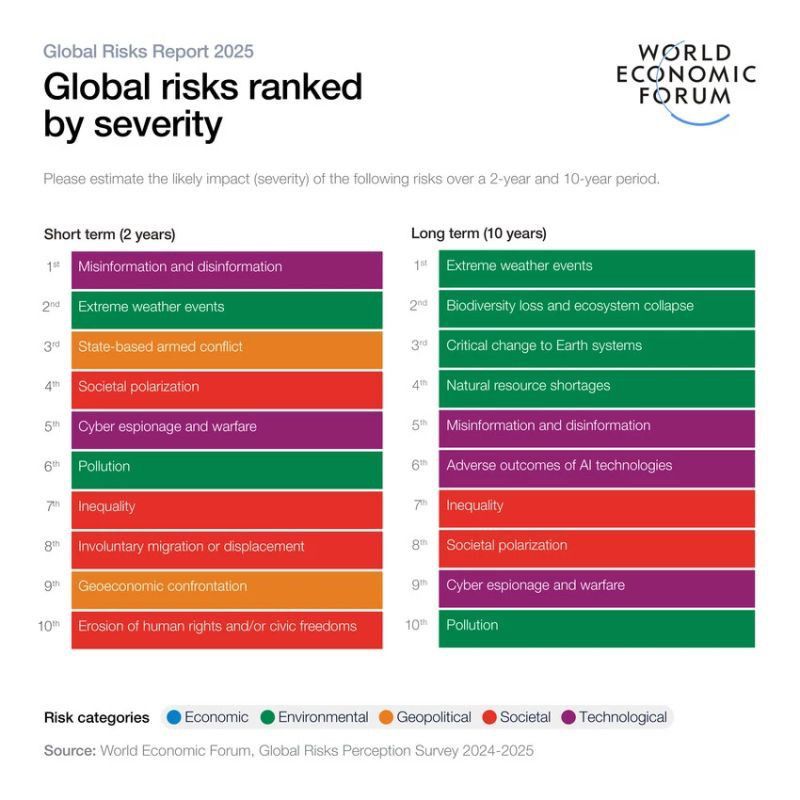
If you are interested in how different Great Replacement conspiracy narratives shape hostility against Muslims and political elites, DM one of us for the preprint.
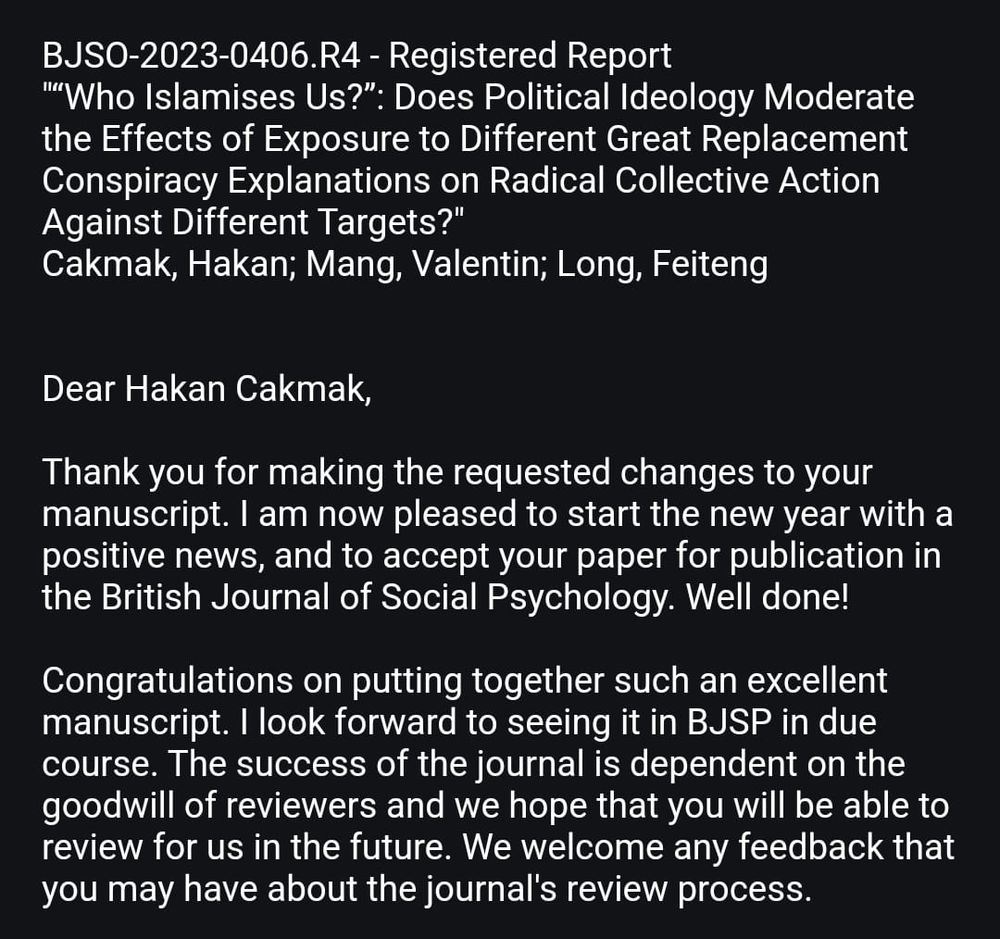
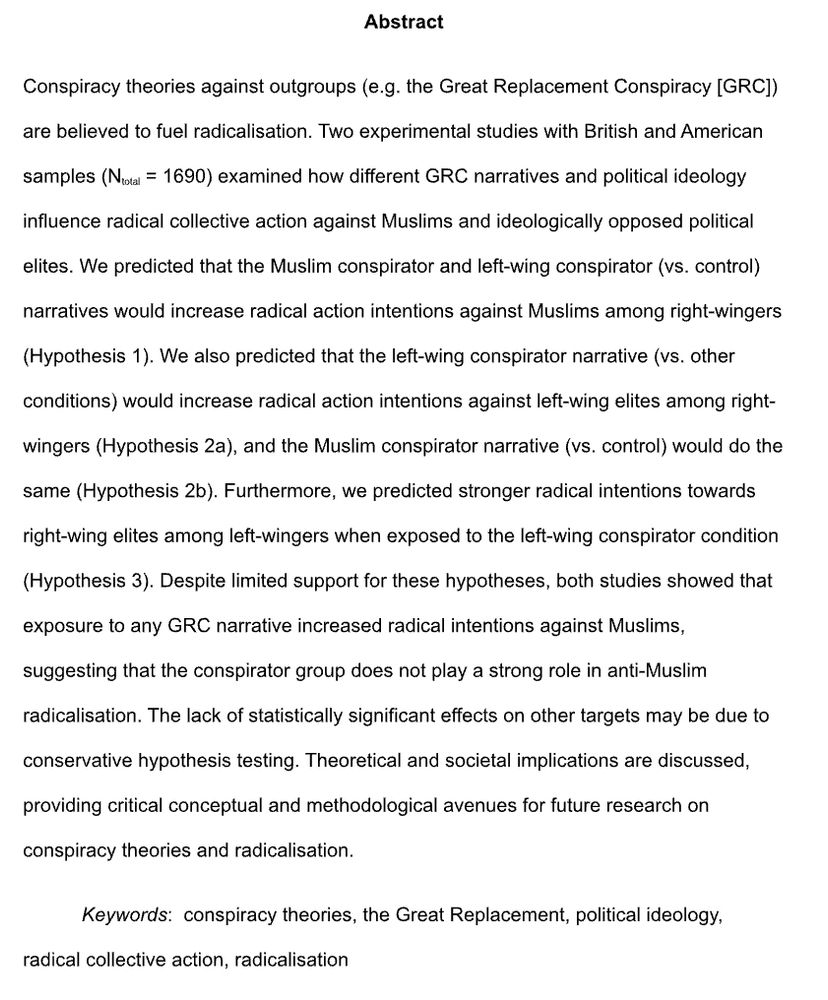
If you are interested in how different Great Replacement conspiracy narratives shape hostility against Muslims and political elites, DM one of us for the preprint.

In this new publication in advances.in/psychology, I systematically reviewed the literature on source credibility effects in misinformation research together with my supervisors Bob Fennis
and @kaiepstude.bsky.social.
A short summary of the highlights of the paper:
Mang, Fennis, & Epstude
This systematic review unravels the complex role of source credibility in misinformation contexts.
advances.in/psychology/1...

In this new publication in advances.in/psychology, I systematically reviewed the literature on source credibility effects in misinformation research together with my supervisors Bob Fennis
and @kaiepstude.bsky.social.
A short summary of the highlights of the paper:
In brief: Prior work found that highly identified transgressor group members may act in solidarity with victims due to ingroup image concerns. Partially replicating this, we showed that justice concerns may motivate low-identifiers.

In brief: Prior work found that highly identified transgressor group members may act in solidarity with victims due to ingroup image concerns. Partially replicating this, we showed that justice concerns may motivate low-identifiers.


authors.elsevier.com/sd/article/S...
authors.elsevier.com/sd/article/S...
With @marijapetrovic.bsky.social, @vukasin.bsky.social
#socialpsyc #PsychSci

With @marijapetrovic.bsky.social, @vukasin.bsky.social
#socialpsyc #PsychSci

